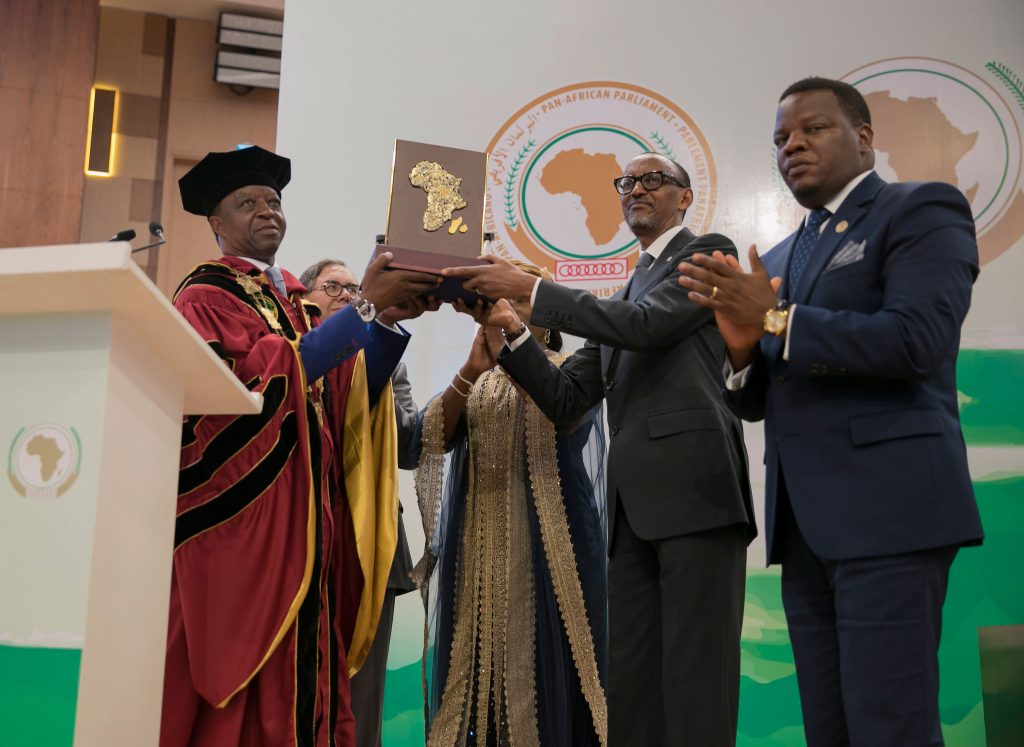The Chairman of RPF Inkotanyi, President Paul Kagame on Monday delivered a keynote address to the Pan-African Parliament (PAP), where he tasked the continental legislators to play their role to ensure the trade deal signed by Heads of State earlier this year is ratified in their respective countries.
The African Continental Free Trade Agreement (AfCFTA) was signed in Kigali in March this year, alongside the Protocol on the Free Movement of Persons as key drivers for the continent’s Agenda 2063.
President Kagame, who is also Chairperson of the African Union, was the Guest of Honor at the First Ordinary Session of the Fifth Parliament being held in Rwanda at the Kigali Convention Centre.
“The Pan-African Parliament serves as a point of connection joining Africa’s legislators, and the citizens they represent, to the African Union Organs. I therefore commend the breadth of your agenda for this session, including a model law on disability, a conference on women’s rights, as well as substantive reports on nutrition, corruption, election observation, and the African Peer Review Mechanism,” President Kagame said.
“More specifically, I would like to ask for your support for the speedy ratification of the African Continental Free Trade Agreement, the Protocol on the Free Movement of Persons, and other key pillars of Agenda 2063.”
He added that the entry into force of these historic compacts will do more than almost anything else to accelerate economic growth and shatter outdated perceptions of Africa.
Important changes are underway on the continent, Chairman Kagame, and it is “about getting our house in order, doing what is right for our people, and speaking with one voice to advance Africa’s interests.”
“Illusions of moral hierarchy that divided continents and peoples are crumbling rapidly, as we have been seeing. Responsibility for Africa’s security and prosperity is, and should be, firmly in our hands,” he said.
“We must meet the imperative of good governance with innovations and solutions drawn from Africa’s rich experiences and cultures, even as we remain open to benefiting from the best global insights.”

